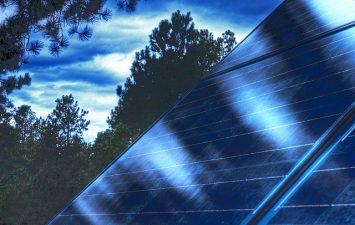 With an extra 15% added to electricity and water bills, Dubai’s residents are bound to cut back their consumption. And that is a good thing!
With an extra 15% added to electricity and water bills, Dubai’s residents are bound to cut back their consumption. And that is a good thing!
Unlike many other Gulf countries, Dubai is not blessed (or cursed, according to some) with fountains of fossil fuels. As such, the Emirate must import the power that provides customers with electricity and desalinated water.
Consumers, perhaps disconnected from the source of their energy, consume more than most countries in the world. But that is about to change since Dubai’s Electricity and Water Authority (DEWA) has added an additional 15% to electricity and water bills, and will also include a new fuel charge, taking even more from the savings accounts of consumers. Though consumers are likely to feel jilted, DEWA hopes the move will cut down on unnecessary consumption and waste.
During the summer of 2010, Dubai’s electricity consumption was 9.6% higher than the previous summer, and its water consumption 5.9% higher. Residents throughout the UAE consume up to 55o liters ever day.
According to researchers, that consumption will continue to grow exponentially by 10% until 2013.
In order to offset the increased fuel charges associated with such demand, Nejib Zaafrain, CEO of Dubai’s Supreme Council of Energy, made the decision to pass on some of those costs to consumers, according to The National.
The prices will be particularly high during peak hours, in order to encourage decreased consumption during that time.
An energy and environment commentator based in Dubai, Vahid Fotuhi notes that these prices are still lower than the UK, US, France, Germany and Japan, and therefore within international standards. Nevertheless, anticipating a public outcry, he offers recommendations for reducing both water and energy consumption.
- Take shorter showers;
- Turn off the air-conditioning when outside of the home;
- Turn the refrigerator down to 2/3 or b/c setting (three degrees Celsius for the fridge and zero for the freezer);
- Use the air-dry setting on dishwashers – this will reduce consumption by 20%;
- Install energy efficient light bulbs that use 1/4 the energy and last 12 times as long as older bulbs;
- Install a smarter irrigation system for gardens, or, better yet, plant desert-friendly plants that also offer shade (such as the date palm.)
This combined with Abu Dhabi’s turn-it-off campaign signal a strong turn towards greater accountability and more responsible use of natural resources.
:: The National
More energy and water news from Dubai:
Dubai’s Foul Ecology At Jumeirah Islands
How to wash your car in a water scarce desert? Ecowash M.E.
Nuclear-powered Water for The UAE?
image via Frerieke



